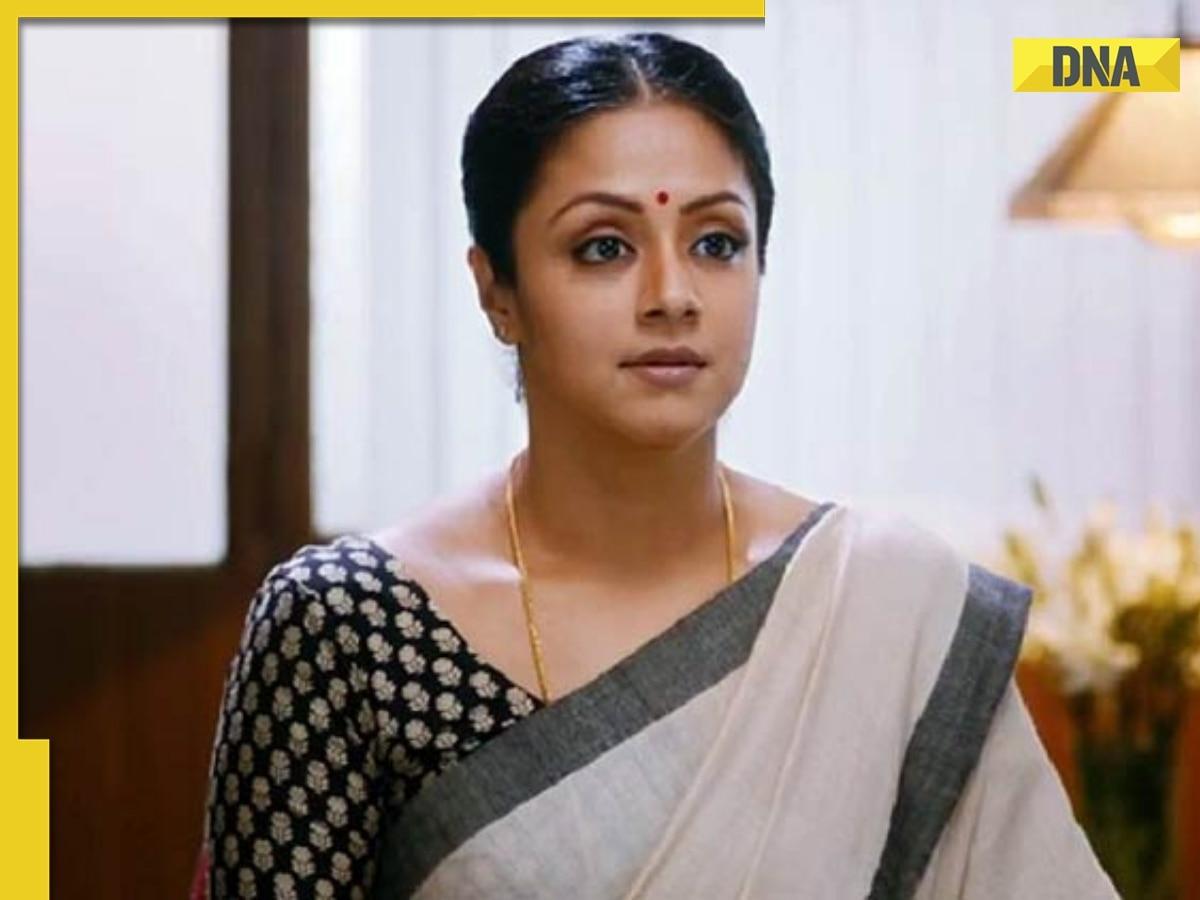
In a recent conversation with Hindustan Times, veteran actress Jyotika shared her thoughts regarding the often misguided portrayals of South Indians in Bollywood cinema. As Jyotika makes her significant comeback to Bollywood in the film “Shaitaan,” starring alongside industry heavyweights Ajay Devgn and R. Madhavan, her opinions garner substantial attention. The actress was recently seen in the film “Srikant” and used the platform to address a long-standing issue in the industry.
Jyotika, known for her nuanced performances and candid nature, openly discussed the prevalent stereotypes Bollywood adheres to when depicting South Indian characters. “I agree some things are done over-the-top there, we love the Idli-Sambar, and we love action films, but sometimes how it is depicted here is definitely overdone. We’ve had actors in Hindi also, like Rajkumar, who have had their own style of overdoing things. But Rajini sir has been taken to another level. It might be done in good spirits but frankly, they do get it wrong most of the time,” stated Jyotika, highlighting the often exaggerated representation of Southern cultural elements in Hindi films.
The actress’s remarks underline a broader conversation about cultural representation and authenticity in Indian cinema. She expressed that while certain cultural facets, like the universal love for idli-sambar or the high-energy action sequences characteristic of South Indian films, are often noted, they are frequently portrayed with a lack of nuance, leaning heavily on caricature.
Jyotika took a historical perspective, reflecting on the past divide between the North and South Indian film industries. “When I went to the South, I saw that people there weren’t watching Hindi films much. And when I came North, I saw a lot of fun being made in the South industry with the Rajinikanth memes and all sorts of things. It was sad to see that there was this huge bar between both worlds,” she said, shedding light on the existing gap and the cultural misunderstandings between the two major cinematic regions of India.
However, Jyotika was optimistic about the changes she has observed over recent years.
. Reflecting on her positive experiences during the making of “Shaitaan,” she commented, “On the sets of Shaitaan, me and (actor) R Madhavan were given so much respect. Ajay (Devgn, actor) made us feel equal to him and the team recognized us as big actors from the South, instead of thinking of us as regional actors. We could see love for the South that had penetrated through Bollywood, and it was mutual.” Her comments resonate with many who have observed a growing mutual respect and collaboration between Bollywood and the Southern film industries.
This shift signifies a more unified Indian film industry, where talent and artistry transcend regional labels. Jyotika’s observations are a testament to this evolving dynamic, signaling the breaking down of old stereotypes and the promotion of a more inclusive cinematic culture.
The actress remains active in her career, continuously working on new projects that bridge this cultural divide. Jyotika will soon be seen in the highly anticipated series “Dabba Cartel,” which boasts an impressive ensemble cast featuring Shabana Azmi, Gajraj Rao, Lilette Dubey, Anjali Anand, Sai Tamhankar, Shalini Pandey, Jisshu Sengupta, and Nimisha Sajayan. Directed by Hitesh Bhatia and produced by Farhan Akhtar and Ritesh Sidhwani’s Excel Entertainment, the series is a crime drama created by Shibani Akhtar, Gaurav Kapur, Akanksha Seda, and Vishnu Menon. It is slated for release on Netflix later this year.
Actresses and actors like Jyotika, who address these pertinent issues, are instrumental in shaping the future of Indian cinema. Their candid dialogues encourage a more accurate and respectful portrayal of diverse cultures, bringing audiences closer together and fostering an appreciation for the rich tapestry of India’s regional identities.
As the Indian film industry continues to evolve, the contributions of seasoned professionals like Jyotika provide hope for breaking down outdated stereotypes and embracing a more holistic approach to storytelling. With cross-cultural collaborations becoming more common and audiences more discerning, the future of Indian cinema looks brighter and more united than ever before.
Remember to stay connected and share your thoughts on this evolving narrative in Indian cinema. The DNA app is now available for download on the Google Play Store—please download the app and share your feedback with us.












